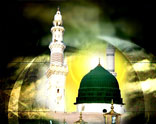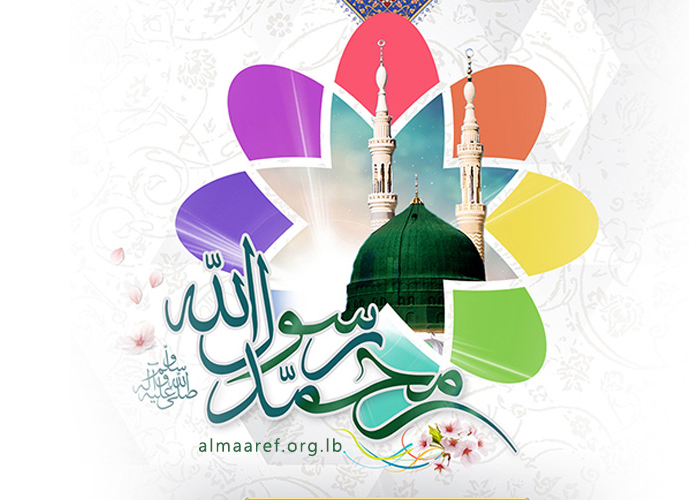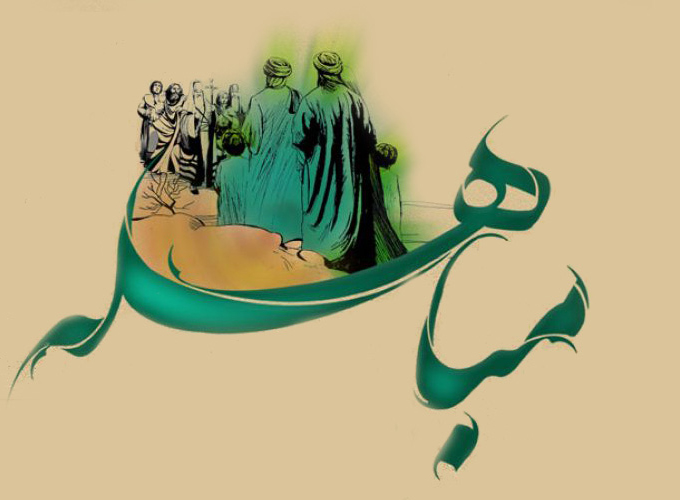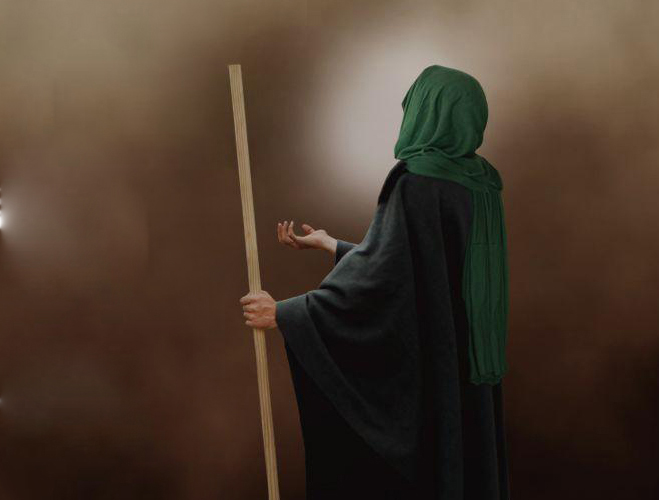The Prophet (peace be upon him and his household) recommended Imam Ali (p.b.u.h) with maxims and decencies to be not specially for Imam Ali (p.b.u.h), but to be a guide and method for all Muslims…here, we choose only some passages from those recommendations and not all of their texts.
1. The Prophet (peace be upon him and his household) said to Imam Ali (p.b.u.h),
“O Ali, from certainty is that you should not please anyone by displeasing Allah, or praise anyone for what Allah has given to you, or dispraise anyone for what Allah has not given to you, because livelihood cannot be brought by a desire of a greedy one nor can it be kept away by the dislike of a disliker. Allah by His will and favor has made mercy and deliverance in certainty and satisfaction, and made grieve and sorrow in suspicion and dissatisfaction.
O Ali, there is no poverty worse than ignorance, no property more beneficial than reason, no loneliness more desolate than self-conceit, no assistance better than consultation, no reason like (good) management, no ancestry like good morals, and no worship like consideration.
O Ali, the plague of speech is lying, the plague of knowledge is forgetting, the plague of worship is slackness, the plague of generosity is the reminding of the favor, the plague of courage is oppression, the plague of beauty is the self-conceit, and the plague of ancestry is priding.
O Ali, Keep to truthfulness and let no lie come out of your mouth at all, and do not dare to commit any treason at all. Fear Allah as if you see Him. Spend your wealth and soul for the sake of your religion. Do keep to the good morals, and do avoid the bad morals.
O Ali, the most beloved deeds to Allah the Almighty are three things; he, who carries out what Allah has imposed on him, is one of the best worshippers, he, who abstains from what Allah has prohibited, is one of the most pious people, and he, who is satisfied with what Allah has given to him, is one of the wealthiest people.”
O Ali, there are three things that are from the nobilities of character; to maintain kinship with those who shun you, to give to those who deprive you, and to pardon those who wrong you.
O Ali, there are three saving things; to restrain your tongue, weep for your sin, and feel satisfied (and pleased) in your house.
O Ali, the masters of deeds are three things; being just to people against yourself, regarding brothers (others) as equal (to you) for the sake of Allah, and remembering Allah at any case.
O Ali, there are three men that are from the guests of Allah; a man who visits his believing brother for the sake of Allah is one of the visitors of Allah and Allah surely is generous to His visitors and He grants them what they ask for, and a man who offers a prayer and then he anthems until the next prayer is the guest of Allah, and surely Allah is generous to His guests, and the performers of major hajj and minor hajj are delegations to Allah, and surely Allah is generous to His delegations.
O Ali, there are three things that their rewards are in this life and in the afterlife; the performing of hajj keeps poverty away, charity repels afflictions, and the maintaining of kinship prolongs one’s age.
O Ali, there are three things that if someone does not have them, his deeds shall not be right; piety that hinders him from the disobediences of Allah the Almighty, knowledge by which he refutes the ignorance of the fool, and reason by which he humors people.
O Ali, there are three men that shall be under the shadow of the Throne on the Day of Judgment; a man who wishes to his brother what he wishes to himself, a man who faces a matter but he does not act until he knows well whether there is satisfaction or dissatisfaction to Allah in that matter, and a man who does not censure his brother for some defect until he repairs that defect in himself, and whenever he repairs a defect in himself, he shall find another, and it is sufficient to man to be busy with himself.
O Ali, there are three things that are from the gates of piety; generosity, good speaking, and patience with harm.
O Ali, in the Torah there are four things beside four things; he who is stingy with the worldly life is angry at Allah, he who complains against a calamity that has afflicted him, as if he complains against his Lord, he who comes to a wealthy person and makes himself low before him, the two thirds of his religion shall go away, and he who shall enter the Fire from this nation is one of those who have taken the signs of Allah as mere amusement and play.
There are four things beside four things; whoever prevails shall appropriate, whoever does not consult (others) shall regret, as you condemn (others) you shall be condemned, and poverty is the major death.
He was asked: is it the poverty of dinars and dirhams? He said: it is the poverty in religion.
O Ali, every eye shall weep on the Day of Judgment except three eyes; an eye that has remained sleepless in the way of Allah, an eye that has been lowered before the prohibitions of Allah (unlawful look), and an eye that has shed tears for fear of Allah.
O Ali, blessed is the figure that Allah looks at while weeping for a sin that no one has ever known except Allah.
O Ali, there are three destructive things and three saving things. As for the destructive things, they are; followed desires, obeyed stinginess, and self-deceit. And as for the saving things, they are; justice at satisfaction and angry, temperance in wealth and poverty, the fear of Allah secretly and openly as if you see Him (Allah), and if you do not see Him, surely He sees you.
O Ali, there are three things that truthfulness is ugly in; talebearing, telling a man about his wife what he hates, and refuting someone intending to do good.
O Ali, there are four things that go in vain; the eating after being satiate, a lamp in the light of the moon, the planting in a moor, and the doing of a favor to one who is not fit for it.
O Ali, there are four things that are the promptest in being punished for; a man that you do him good and he rewards your good doing by doing you bad, a man that you do not wrong but he wrongs you, a man that you agree with him on something and you are loyal to him but he betrays you, and a man that you maintain kinship with but he turns his back to you.
O Ali, there are four things that whoever has had, his faith in Islam shall be perfect; truthfulness, gratefulness, modesty, and good manners.
O Ali, the littleness of asking people for needs is the present wealth, and the muchness of being in need of people is a basement and it is the present poverty.”1
2. In another recommendation, the Prophet (peace be upon him and his household) said to Imam Ali (p.b.u.h), “O Ali, every sin has a repentance except bad morals, for whenever their owner gets out of a sin, he falls into another.”2
3. The Prophet (peace be upon him and his household) said to Imam Ali (p.b.u.h),
“O Ali, the best of jihad is when one does not intend to do wrong to anyone.”
O Ali, whoever people fear his tongue is from the people of the Hell.
O Ali, the worst of people is one whom people respect just to be safe from his impudence and from the harm of his evil.
O Ali, the worst of people is one who sells his afterlife for his worldly life, and worse than him is one who sells his afterlife for the life of other than him.”3
4. The Prophet (peace be upon him and his household) said to Imam Ali (p.b.u.h),
“O Ali, Allah the Almighty has removed by Islam the arrogance of the Pre-Islamic people and their priding on their fathers. Surely the human beings are from Adam and Adam is from earth, and the most honored one of them is the most pious.”4
5. The Prophet (peace be upon him and his household) said to Imam Ali (p.b.u.h),
“O Ali, I forbid you from three things; envy, stinginess, and pride.”5
6. The Prophet (peace be upon him and his household) said,
“O Ali, he, who learns a science to compete by it with the fools, or to argue with scientists, or to invite people for himself, is from the people of the Hell.”6
7. The Prophet (peace be upon him and his household) said,
“O Ali, care for four things before four things; your youth before your old age, your health before your illness, your wealth before your poverty, and your life before your death.”7
8. The Prophet (peace be upon him and his household) said,
“O Ali, make your manners good with your family, neighbors, associates, and companions and you shall be recorded near Allah in the high degrees.”8
9. The Prophet (peace be upon him and his household) said,
“O Ali, there are three things that are from the gates of piety; generosity, good speech, and patience with harms.”9
* Taken from: The Life of Muhammad The Greatest Liberator The Holiest Prophet ,Author: Allama Baqir Shareef al-Qurashi ,Translator: Abdullah al-Shahin
1- Tuhaf al-Uqool, p. 6-9.
2- Musnad of Imam Ali, p. 47.
3- Wasa’il ash-Shia, vol. 6 p. 333.
4- Bihar al-Anwar, vol. 77 p. 53.
5- Bihar al-Anwar, vol. 77 p. 53.
6- Ibid., p. 54.
7- Ibid., p. 49. It means to perform one’s obligations and to do good deeds during one’s youth before his old age, and when healthy before being ill…etc.
8- Bihar al-Anwar, vol. 77 p. 67.
9- Ibid., p. 62.




















